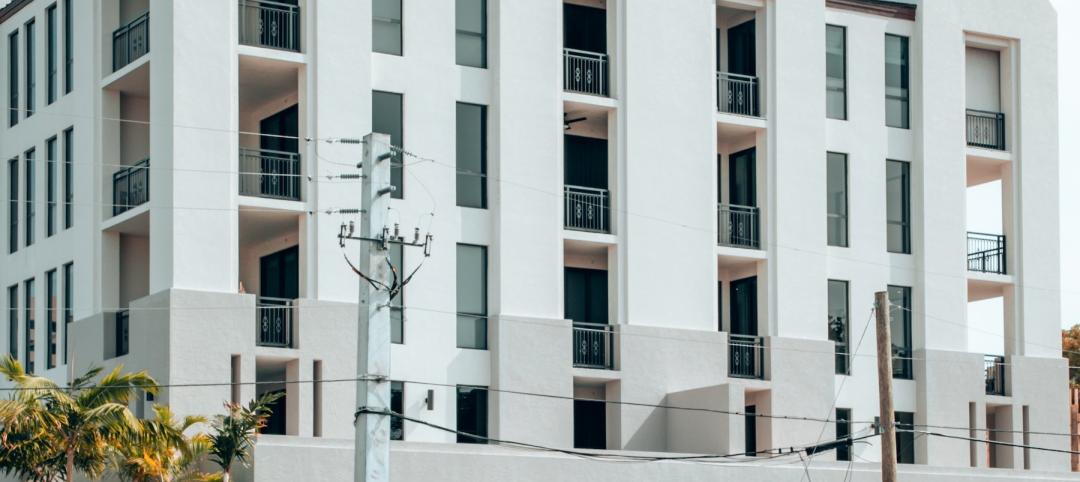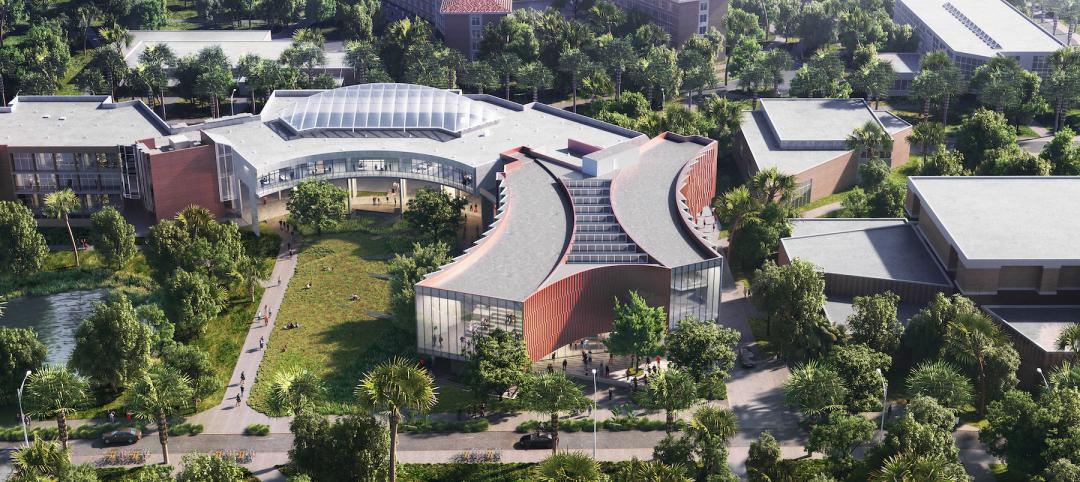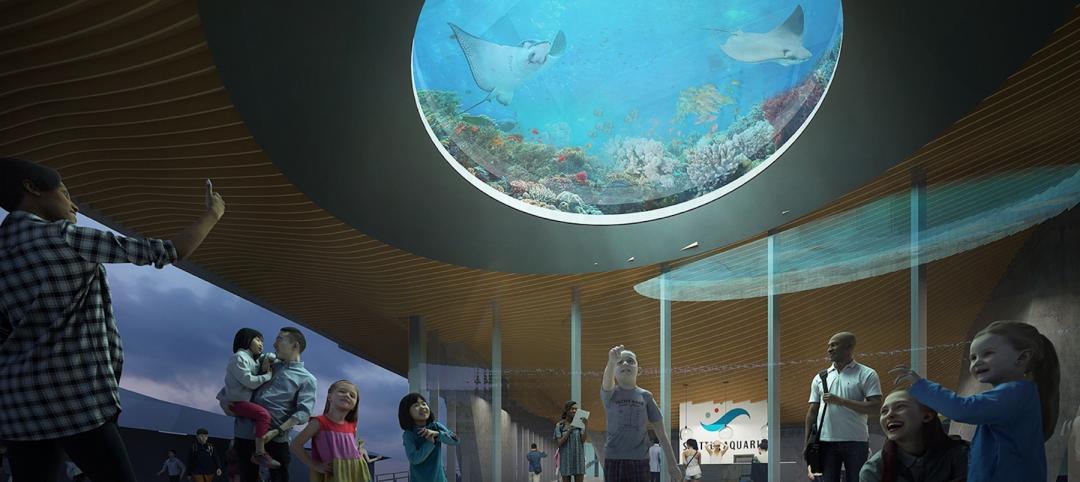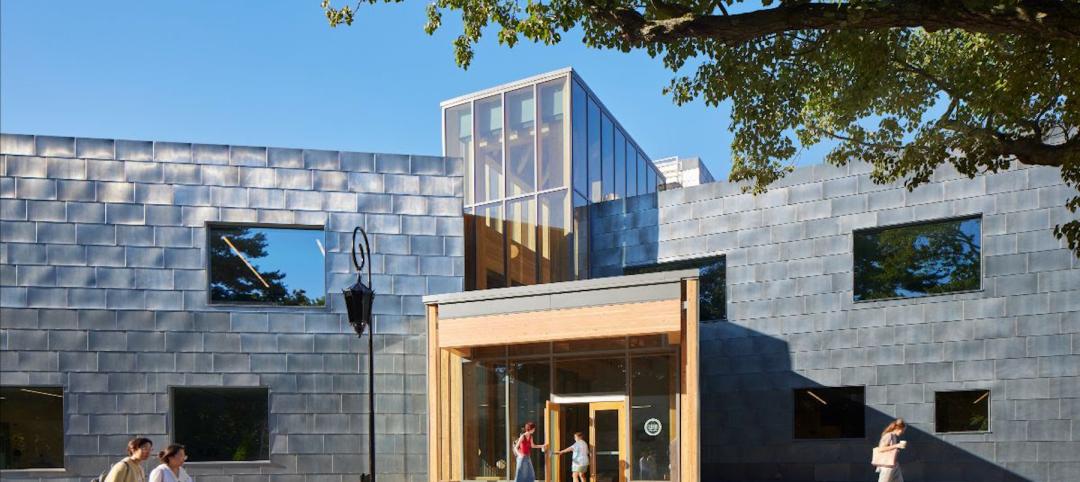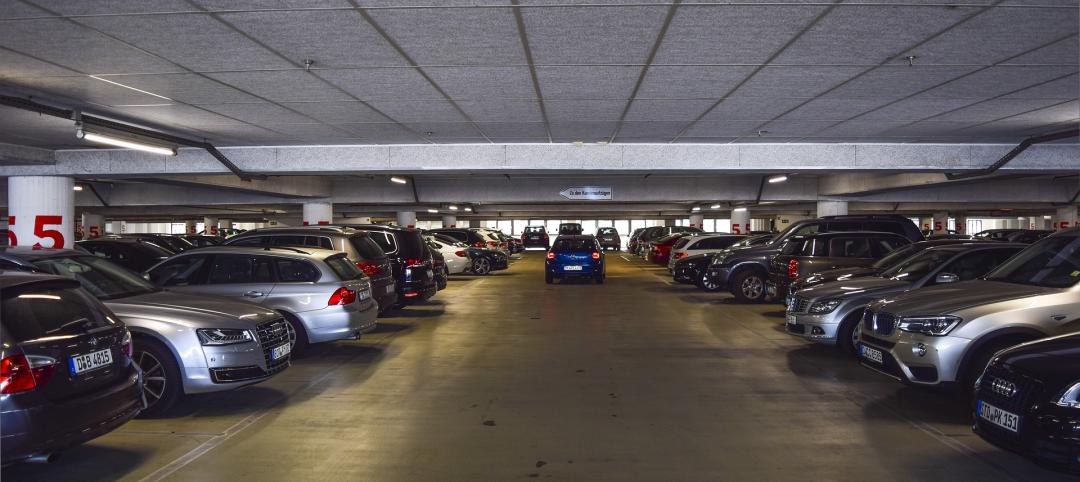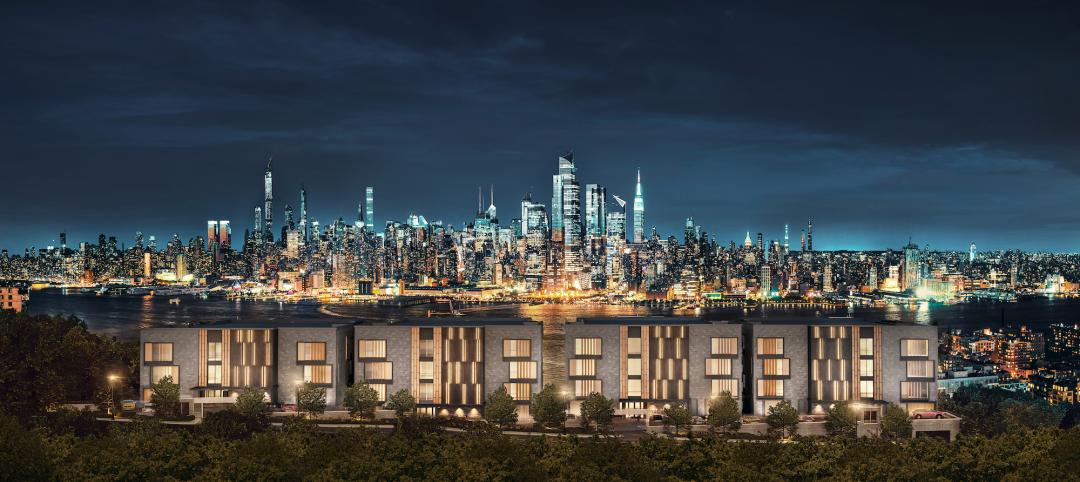Destination Food, an open-source technology platform that connects food supply with demand on a local level, was voted the $3,000 Grand Prize winner in Building Design+Construction's first annual Vision U40 Competition. The competition took place last week at BD+C's Under 40 Leadership Summit in San Francisco.
The goal of the competition was to develop and present innovative solutions for today's pressing social, economic, technical, and cultural problems related to the built environment. Fifteen teams participated in the Vision U40 competition. Each team had just 90 seconds to pitch their concept to the entire group, who voted for their top five.
Here are the five winning teams (click here to see all 15 concepts):
1. Destination Food ($3,000 grand prize winner)
Problem: More than 23 million Americans live without access to affordable, nutritious food. Making things worse, 40% of the food in the U.S. goes to waste.
Solution: Destination Food is an open-source technology platform that connects food supply with demand in a simple, convenient, and affordable way. The app includes a database of profiles and ratings for growers, GPS mapping for connecting consumers to the closest food suppliers, and a scheduling tool for setting up deliveries.
Team:
Cynthia Dubberley, Architect, Eskew + Dumez + Ripple, New Orleans
Christina Weber, Business & Community Development, DIRTT Environmental Solutions, San Francisco
Tyler Krehlik, Architect, SmithGroupJJR, San Francisco
Kelly Dubisar, Architect, Gensler, San Francisco
2. The Kids Are Alright ($500)
Problem: The younger generation prefers to stay inside, whether in the classroom or on the couch. Additionally, parents are missing out on sharing the same learning opportunities their children have.
Solution: Create a Foursquare-type mobile app that, instead of pulling up nearby restaurants, provides educational information based on your current location—from details on the oak tree in your backyard to the history of the landmark building in the center of town. The app encourages kids and their parents to interact with and learn about their surrounding environment.
Team:
Beatrice Tang, Associate Principal, Callison, Seattle
David Monroe, Assistant Project Manager, Balfour Beatty, Dallas
Lauren Smith, BIM Manager, S.M. Wilson & Co., St. Louis, Mo.
3. F.A.B.R.I.C. ($500)
Problem: "Unsocial" media has unraveled the fabric of our neighborhoods. How do we encourage people to get outside and interact and connect with their neighbors and communities?
Solution: This digitized sidewalk encourages people to get outside and weave back into their communities. F.A.B.R.I.C. (short for "future, active, bio-optic, responsive, inter-community" sidewalk) features virtual, interactive games, energy generation, social spaces, and an associated mobile app that, for instance, will alert users when a friend is nearby.
Team:
Elliott Disney, Project Engineer, Southland Industries, Union City, Calif.
Greg Hadsell, Associate, HDR Architecture, San Francisco
Susie Westrup, Sustainability Specialist, Balfour Beatty, Dallas
Nathan Ducote, Project Manager, Balfour Beatty, Dallas
4. WellBOX ($500 - tied for fourth place)
Problem: During the next 20 years, 970 million people will be added to third-world countries. These areas lack access to critical healthcare services and clean water.
Solution: The WellBOX is a portable health clinic that can be dropped into any region of the world to provide clean drinking water and healthcare services and education. The self-sustaining unit will be powered by solar panels and will tap into a local well to provide water filtration. The modular structure will come equipped with tele-medicine equipment, allowing doctors to diagnos remotely.
Team:
Emily Guglielmo, Senior Structural Engineer, Martin/Martin, Larkspur, Calif.
Candace Small, Architect, VOA Associates, Chicago
Vincent D'Ambrosio, Senior Vice President, Hill International, Marlton, N.J.
Chris Hermreck, Project Manager, JE Dunn Construction, Kansas City, Mo.
4. Internext ($500 - tied for fourth place)
Problem: The digital information world offers us instantaneous, universal access, but inundates us with data in a constant, overwhelming stream. As a result, our connections to others and our surrounding community are becoming less meaningful. We've lost our sense of place.
Solution: Internext filters when and where you receive specific digital information based on rules you set, helping you prioritize your life following preferences that reflect your values. Want to spend more time with your family? Set a rule that holds all email after 6 p.m. on workdays. Want to connect with fans of your favorite team while on vacation? Let Internext find the popular hangouts.
Team:
Dace Campbell, Customer Success Manager, Autodesk, Shoreline, Wash.
David Mayman, Architect, Gensler, San Francisco
Craig Chinn, Associate Principal, KTGY Group, Irvine, Calif.
Molly Engelbert, Assistant Project Manager, Balfour Beatty, Dallas
Related Stories
Building Team | Oct 27, 2022
Who are you? Four archetypes shaping workspaces
The new lifestyle of work requires new thinking about the locations where people work, what their workflow looks like, and how they are performing their best work.
Codes and Standards | Oct 27, 2022
Florida’s Surfside-inspired safety law puts pressure on condo associations
A Florida law intended to prevent tragedies like the Surfside condominium collapse will place a huge financial burden on condo associations and strain architecture and engineering resources in the state.
University Buildings | Oct 27, 2022
The Collaboratory Building will expand the University of Florida’s School of Design, Construction, and Planning
Design firm Brooks + Scarpa recently broke ground on a new addition to the University of Florida’s School of Design, Construction, and Planning (DCP).
Building Team | Oct 26, 2022
The U.S. hotel construction pipeline shows positive growth year-over-year at Q3 2022 close
According to the third quarter Construction Pipeline Trend Report for the United States from Lodging Econometrics (LE), the U.S. construction pipeline stands at 5,317 projects/629,489 rooms, up 10% by projects and 6% rooms Year-Over-Year (YOY).
Data Centers | Oct 25, 2022
Virginia county moves to restrict the growth of new server farms
Loudoun County, Va., home to the largest data center cluster in the world known as Data Center Alley, recently took steps to prohibit the growth of new server farms in certain parts of the county.
Museums | Oct 25, 2022
Seattle Aquarium’s new Ocean Pavilion emphasizes human connection to oceans
Seattle Aquarium’s new Ocean Pavilion, currently under construction, features several exhibits that examine the human connection with the Earth’s oceans.
Energy-Efficient Design | Oct 24, 2022
Roadmap shows how federal buildings can reach zero embodied carbon emissions by 2050
The Rocky Mountain Institute (RMI) has released a roadmap that it says charts a path for federal buildings projects to achieve zero embodied carbon emissions by 2050.
Higher Education | Oct 24, 2022
Wellesley College science complex modernizes facility while preserving architectural heritage
A recently completed expansion and renovation of Wellesley College’s science complex yielded a modernized structure for 21st century STEM education while preserving important historical features.
Transportation & Parking Facilities | Oct 20, 2022
How to comply with NYC Local Law 126 parking garage inspection rules
Effective January 1, 2022, New York City requires garage owners to retain a specially designated professional engineer to conduct an assessment and file a report at least once every six years. Hoffmann Architects + Engineers offers tips and best practices on how to comply with NYC Local Law 126 parking garage inspection rules.
Architects | Oct 20, 2022
Michael Graves Architecture acquires Jose Carballo Architectural Group
Michael Graves Architecture (MG), an award-winning global leader in planning, architecture, and interior design based in Princeton, NJ, announces the acquisition of Jose Carballo Architectural Group (JCAG), a New Jersey-based architecture firm.




